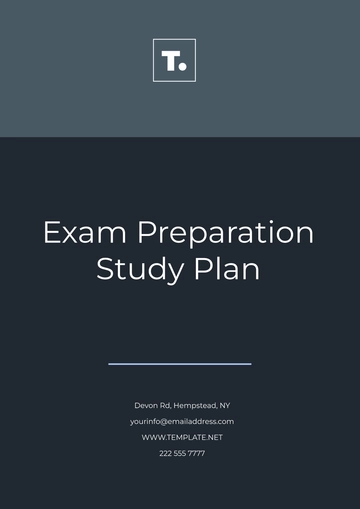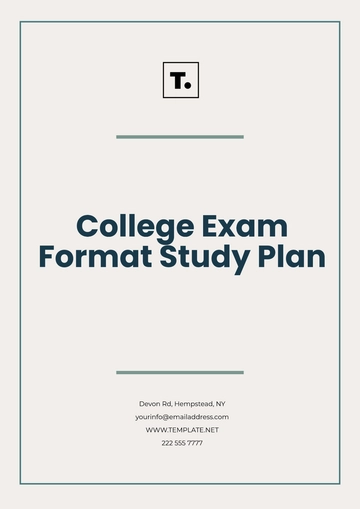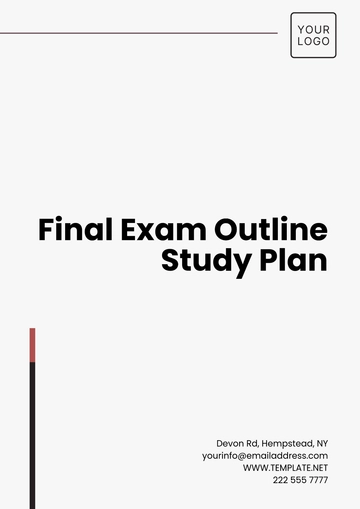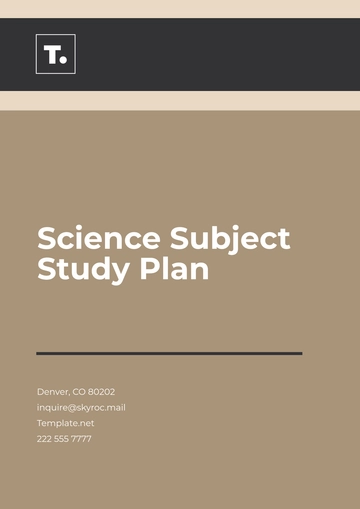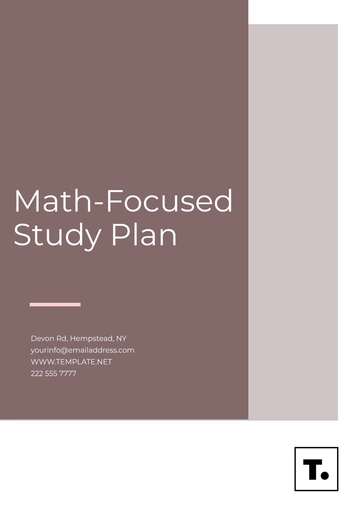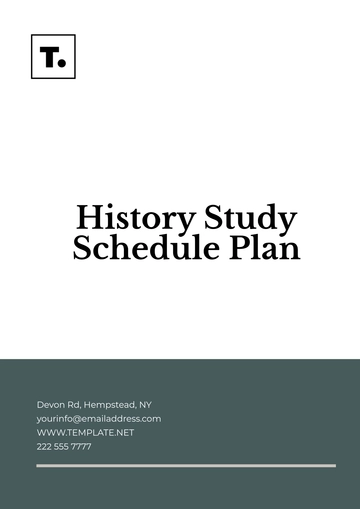Free High School Study Plan
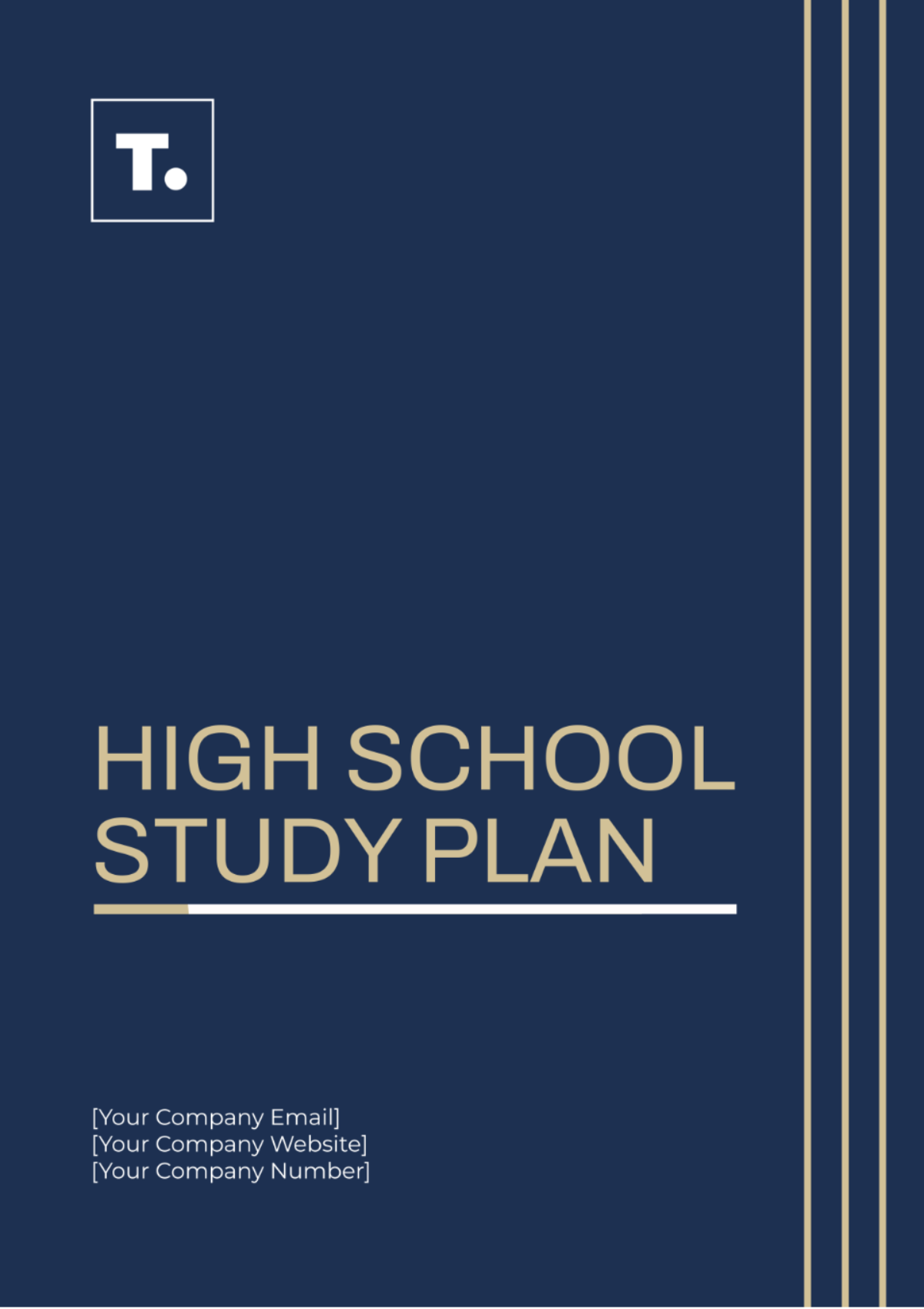
Prepared by: [Your Name]
I. Introduction
A. Purpose
The purpose of this study plan is to provide high school students with a structured framework for academic success. It aims to promote clarity, flexibility, balance, and practicality in studying, ensuring that students can effectively manage their academic responsibilities while achieving their educational goals.
B. Objectives
Develop effective study habits
Improve academic performance
Foster a balanced approach to learning and personal well-being
Prepare for college entrance exams and future educational endeavors
II. Study Schedule
Day | Time | Subject |
|---|---|---|
Monday | 9:00 AM - 10:30 AM | Math |
11:00 AM - 12:30 PM | Science | |
1:30 PM - 3:00 PM | English | |
Tuesday | 9:00 AM - 10:30 AM | History |
11:00 AM - 12:30 PM | Foreign Language | |
1:30 PM - 3:00 PM | Physical Education | |
Wednesday | 9:00 AM - 10:30 AM | Art |
11:00 AM - 12:30 PM | Music | |
1:30 PM - 3:00 PM | Elective Course | |
Thursday | 9:00 AM - 10:30 AM | Math |
11:00 AM - 12:30 PM | Science | |
1:30 PM - 3:00 PM | English | |
Friday | 9:00 AM - 10:30 AM | History |
11:00 AM - 12:30 PM | Foreign Language | |
1:30 PM - 3:00 PM | Physical Education |
III. Study Methods
Effective study techniques are crucial for high school students to excel academically. Active learning is encouraged, involving methods such as note-taking, summarization, and active participation in class discussions and group activities. Additionally, mastering time management skills is essential. Using a planner or digital calendar helps organize study sessions, assignments, and extracurricular activities efficiently.
Breaking down study sessions into manageable chunks with breaks in between enhances productivity and prevents burnout. Furthermore, leveraging various resources and study methods is beneficial. High school students can utilize textbooks, online resources, study groups, practice questions, and note-taking strategies to reinforce learning and comprehension.
IV. Monitoring Progress
Monitoring progress is integral to academic success and personal growth. Weekly reflection allows students to assess their achievements, challenges, and areas for improvement. By reflecting on their experiences, they can identify effective study strategies and areas needing adjustment. Goal setting is another crucial aspect. Setting specific, measurable goals for each subject or academic endeavor provides students with a clear direction and motivation to succeed.
Regularly tracking progress towards these goals enables students to celebrate successes and adjust their approach as needed. Additionally, seeking feedback from teachers, peers, and parents facilitates continuous improvement. Incorporating feedback into their study strategies and academic decisions empowers students to reach their full potential.
V. Conclusion
By adhering to this high school study plan with dedication and diligence, students pave the way for academic success while nurturing their overall well-being. It is essential to maintain a balanced approach, integrating effective study techniques, personal well-being strategies, and progress monitoring methods. Through commitment to their academic pursuits and personal growth, students can cultivate the skills and habits necessary for lifelong learning and achievement.
- 100% Customizable, free editor
- Access 1 Million+ Templates, photo’s & graphics
- Download or share as a template
- Click and replace photos, graphics, text, backgrounds
- Resize, crop, AI write & more
- Access advanced editor
Navigate high school academics effortlessly with the High School Study Plan Template from Template.net. This downloadable, printable, and customizable template is designed to balance your classes, extracurricular activities, and study time. Utilize our AI Editor Tool to edit the plan according to your unique schedule, ensuring you maintain a well-rounded and organized academic life.



